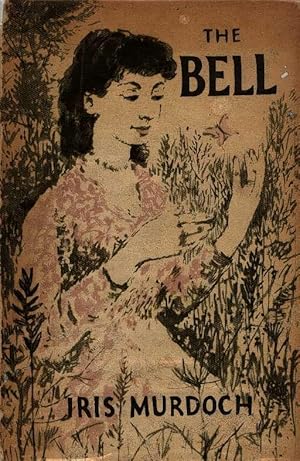
And everyone, or almost everyone, hopes to be saved, whatever that may mean. Meanwhile the wise old Abbess watches and prays and exercises discreet authority. A new bell is being installed when suddenly the old bell, a legendary symbol of religion and magic, is rediscovered.

What we have never had, of course, is a satisfactory Liberal theory of personality, a theory of man as free and separate and related to a rich and complicated world from which, as a moral being, he has much to learn.” In her novels Miss Murdoch tries to correct the current oversimplified concept of man by delineating with great persuasiveness both the complexity and diversity of human beings and the complicated relationship between the individual and the society in The Bell the ideas which emerge from a very credible fictional world are concerned with the inadequacy of absolute moral codes, the nature of love, reality, the irrational, and freedom.A lay community of thoroughly mixed-up people is encamped outside Imber Abbey, home of an order of sequestered nuns. For the hard idea of truth we substituted a facile idea of sincerity.

We picture man as a brave, naked will surrounded by an easily comprehended empirical world. We no longer see man against a background of values, of realities, which transcend him. We no longer use a spread-out substantial picture of the manifold virtues of man and society. What is needed, she feels, is a better grasp of man's nature and his situation: “we have suffered a general loss of concepts, the loss of a moral and political vocabulary. Across the spectrum of modern thought-in philosophical works like Gilbert Ryle's The Concept of Mind and in novels like Sartre's Nausea-Miss Murdoch finds the same shallow image of man, an image derived from Hume's materialistic behaviorism and Kant's idea of the isolated will.

One of Miss Murdoch's central theses, propounded in her essays and her book on Sartre, is that both contemporary fiction and philosophy fail to set forth an adequate idea of human personality. However, at least one modern philosopher-novelist, Iris Murdoch, has succeeded in creating genuine fictional worlds which are enriched but not dominated by her philosophical interests. Although literature and philosophy are concerned with many of the same problems, attempts to combine them have seldom been successful too often the union of fiction and philosophy has produced the hybrid novel of ideas or, more recently, the highly complex symbolic novel, a metaphysical kaleidoscope which creates a Weltanschauung however one twists it.


 0 kommentar(er)
0 kommentar(er)
